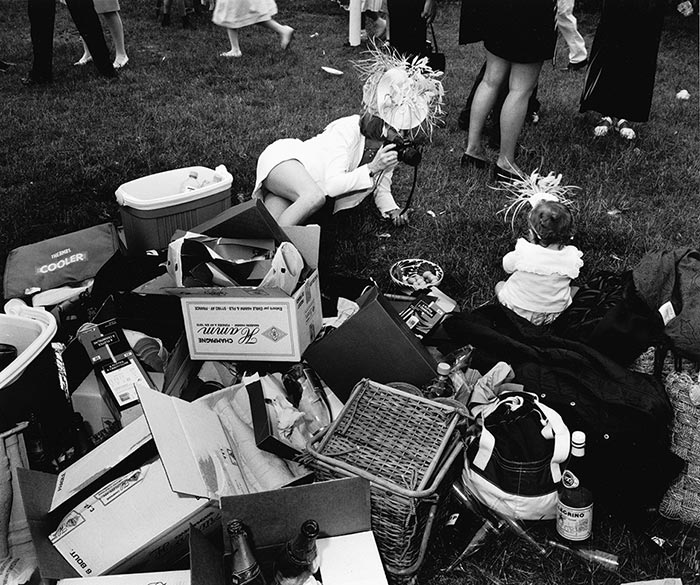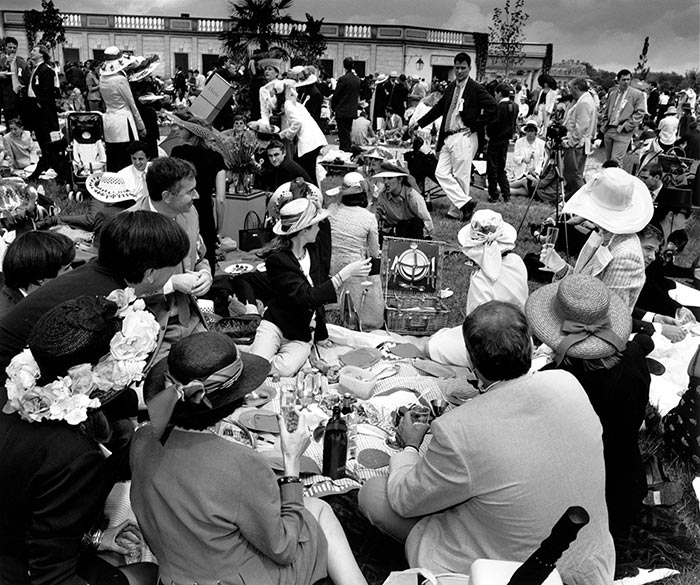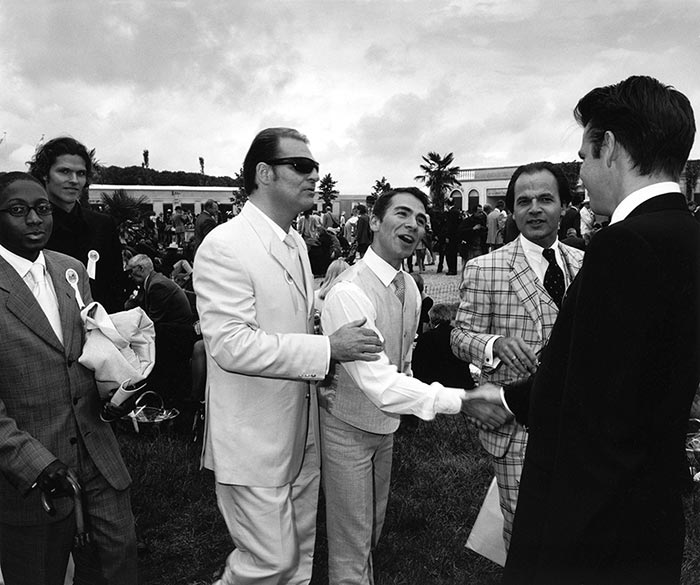
Michel Houellebecq on principles: “I had to stick to my ‘liberal humanist’ position; I knew in my heart it was my only chance of getting laid.” On family: “The couple quickly realized that the burden of caring for a small child was incompatible with their ideal of personal freedom.” On the French president: “He seemed to be such an idiot, it was affecting the country’s image.” On 1960s feminists: “Their mature years brought only failure, masturbation, and shame.” On Québécois tourists: “They were thickset and tough, all teeth and blubber, talking incredibly loudly.” On what all men want: “little sluts who are innocent but ready for all forms of depravity.” On the United States: “If ever there was a country in need of sex tourism, it’s theirs.” On Muslims… well, it’s probably for the best that Islamic fundamentalists don’t follow French novelists too closely these days. For readers who do, however, Michel Houellebecq never fails to win attention for his blunt excoriations of late Western civilization. His books, which are endlessly obsessed over in Paris, abound in self-loathing, raw comedy, caustic opinion, and downcast introspection—in short, they veer between self-exhibition and outrageous moralizing.
Houellebecq is only the latest in a line of writers who have seized on elegant hypocrisy, slothful consensus, and soft-boiled thinking as the unnoticed debilitations of smugly superior societies. The French seem particularly adept at inspiring and sustaining such work. Montaigne, Molière, Voltaire, Diderot, Stendhal, and, more recently, Camus and Sartre have variously undercut café society with satire, irony, and outright provocation, while invariably winning admiration for their efforts from the very circles they attacked. In this co-dependency, two elements underlie the sundry engagements of these very different writers: first, a strong moral awareness that things have gone awry in times when the general feeling is triumphant; second, a willingness—whether gleeful or masochistic or both—to be unremitting and fearless in the ensuing critique. As part of this tradition, Houellebecq reads like an aggressive moralist for the well-to-do ranks of the contemporary West. Beneath their self-congratulatory poses, Houellebecq’s characters are driven by the all-conquering libidos and congenital selfishness unleashed by the 1960s, and these glorious freedoms leave them desperate to find more in life than new sexual positions and interesting Chardonnays.
In Houellebecq’s fashioning, these characters are the elite members of a society that has, on the whole, lost its sense of how and why life ought to matter, having warded off such questions through an onslaught of passing pleasures—shopping, travel, antidepressants, assorted cheap orgasms. As can be the case with satirists, Houellebecq uses broad strokes when creating a cultural landscape he only intends to assault, and his critiques are too often crowded out by the zeal with which he imagines them. Much of his fiction consists of nasty swipes and nastier sex scenes, and at times it reads like little more than a French mélange of Lenny Bruce and Penthouse Forum. But Houellebecq’s hysterical and rancid assaults can also be taken as evidence of the extremes to which one must go these days to attack Progress and its sidekick Tolerance, our preferred shibboleths for dealing with moral, political, economic, and technological problems.
Houellebecq first won notice with The Elementary Particles, his 1998 novel about half-brothers Bruno and Michel who come of age in the wake of the social revolutions of the 1960s and then conduct parallel searches for love and fulfillment, only to find their initial flaws merely enhanced and rewarded by the culture around them. Bruno, an unpopular, unattractive boy with raging hormones and low ambition, becomes an Olympic libertine and a professional failure. He devotes himself to gorging on mouthfuls of flesh and drink, which are all the more easy to come by after the sexual revolution. So too are the mediocre civil-servant day jobs that Bruno slouches through between orgies, as the novel traces out how the May ’68 generation transformed itself into France’s self-serving ruling class.
Michel, an introvert unconcerned about bodily desires and prone to showy feats of theoretical abstraction, becomes an internationally renowned molecular biologist. Though beset by existential angst, he has little trouble inserting himself into the arid order and hyper-specializations of the genetic-research circuit, where human contact need never involve more than shop talk that protects scientists from needlessly complicated questions about the ethically compromising nature of their work.
When Bruno turns inward to consider what his life has brought him, the view never fails to disappoint: “What message did he have to give? Nothing. There was nothing. He knew his life was over, but he didn’t understand the ending. Everything was dark, indistinct and painful.” As for Michel, he achieves a historic scientific breakthrough and then commits suicide. Houellebecq holds up the brothers in The Elementary Particles as anti-exemplars of the West’s devotion to personal freedom and technological advance.
Houellebecq returned to these grounds with further attacks on multiculturalism and market democracy in his next novel, Platform, which lines up Western hedonists, Third World sex resorts, and Islamic terrorists. Released days before September 11, 2001, Platform drew immediate praise for its prophetic vision and relevance. The novel’s world-weary and well-off protagonist, Michel, meets a shy and attractive tour planner, Valérie, while travelling in Thailand. She turns out to be a nymphomaniac just waiting for a man to come along with the right combination of toughness and tenderness to get her legs quivering. The two soon recognize that they’re not alone in their wanderlusts, or in looking to get away from the riotous immigrants and quarrelsome politicos of France. They design adults-only travel packages along a First World/Third World axis, matching lonely Europeans with money to burn and starving Southeast Asians with bodies to sell. All in a lovely tropical setting.
When East and West start bedding down for mutual profit on a Thai beach, however, “men wearing turbans” catch wind of the debauchery and intervene with machine guns. The ensuing carnage is as unsubtle and unpersuasive as the novel’s action hero and its acrobatic sex scenes. Michel manages to survive the terrorist attack, only to begin a solitary life in an apartment in a town outside Bangkok, where death is all he can look forward to: “I’ll be forgotten. I’ll be forgotten quickly.” Prior to this typically despairing Houellebecq ending, amid blithe invective about existence itself, the narrator-protagonist offers his stark idea of what has gone wrong with the West and beyond: “We have created a system in which it has simply become impossible to live, and what’s more, we continue to export it.”
In Platform, human life has become impossible because it has been pacified by the union of free love and free spending. In Houllebecq’s latest novel, The Possibility of an Island, it has simultaneously become entranced by technology’s presumptive ability to better our lives—a theme the author explores by extending the social and technological progress of the early twenty-first century into a suicidal future.

The Possibility of an Island takes Houllebecq’s anti-liberal grandstanding to misanthropic heights. An uneasy amalgam of satire, science-fiction, and fantasy, the novel chooses as its premise a genetic breakthrough that creates a new human race from the old. These “neo-humans” are self-sufficient, evolved copies of their predecessors, built to pursue sanitized and carefree lives that start at eighteen and end in middle age with their committing suicide, at which point a replacement is promptly sent along from a cloning factory. In the novel’s rendering, such existence is the summa of the secular-materialist world view: an effortless, responsibility-free heaven on earth. This is paradise digitally preset, a period of maximum pleasure and minimum pain as determined by the half-religion/half-biotech corporation that rules the world. The book tests out this futuristic experience through parallel life stories—from Daniel, a lovelorn shock-comic living in the early twenty-first century just before human-cloning experiments reach fruition, and from the twenty-fourth and twenty-fifth instantiations of Daniel1, as the original comes to be known.
The novel initially reads like an overview of its author’s sensational rise, in the guise of Daniel1 reviewing his livelihood. Describing himself as “genuinely excessive” in his material, he is bemused by the fact that he has won more adulation and made more money with every new provocation: “In a few minutes I reviewed the whole of my career…. Racism, pedophilia, cannibalism, parricide, acts of torture, and barbarism: in less than a decade, I had creamed off all the lucrative niches.” Daniel1’s oeuvre peaks with a show he entitles We Prefer the Palestinian Orgy Sluts, which outrages righteous Muslims and leads the righteous French intelligentsia to “cast [him] in the role of a hero of free speech.” Daniel1 shrugs off his headline-grabbing and enters into comfortable semi-retirement in Spain, where he has two broken relationships. The first is with Isabelle, a publishing executive with whom he has happiness everywhere except in the bedroom: she’s approaching middle age, her breasts and buttocks are drooping, and he considers mediocre sex to be a self-evident injustice. The two part after agreeing to a visitation schedule for their dog. Daniel1 then meets Esther, a nubile actress decades his junior. In exchange for shiny baubles of upper-tier living, she affords him the “infinite joy” of doing whatever he wants to her body and of commanding her to do likewise to his.
But when the young woman turns her attentions elsewhere, Daniel1 is left with a broken heart and an aching crotch. Neither reconciliation with Isabelle nor stalking Esther solves his malaise, so he devotes himself to a simple existence with his dog, Fox, and to getting increasingly involved with a cult headquartered in the Canary Islands—the organization that will eventually rule the world. Once this convoluted premise has been established, the novel moves past Houellebecq’s standard contemporary satire into a dark futuristic fantasy. The “Elohimites,” led by a New Age cult leader, believe that humanity was created by aliens. They experiment with cloning, to perfect the human race in preparation for the return of its creators. Houellebecq appears to base the group on the Raelians—the kooky organization that flashed across the news for a few minutes a few years ago with unsubstantiated claims to have cloned a person—but he refuses an easy takedown. Instead, he depicts their ambitions as globally successful so as to lacerate his progress-minded readership. The Raelians’ fictional counterparts eventually outpace enfeebled Christianity and surging Islam to become the world’s dominant religion, since they give the “leisure civilization” borne of bloated liberalism what it truly wants: the sensation of permanent well-being at any cost save personal suffering. “Imposing no moral constraints, reducing human existence to categories of interest and of pleasure,” Houellebecq writes, “[made] its own the fundamental promise at the core of all monotheistic religions: victory over death. Eradicating any spiritual or confusing dimensions, it simply limited the scope of this victory, and the nature of the promise associated with it, to the unlimited prolongation of material life.”

The first adherents of “the Church” provide it with their dna and life savings and then commit painless suicide, dying with the promise that they will be genetically resurrected without the difficulties and ugliness of their first go-rounds. Daniel1 is an early convert. His own life, as he repeatedly describes it, is so empty of higher meaning and authentic love that he gives the Elohimites his dna despite first-hand knowledge of the cult leadership’s falsehoods, unblinking brutality, and manipulation of its pie-eyed followers. Fearful of the “pure terror of space” that stands in front of him—a wintertime of life without sex or companionship—he commits suicide as well, making way for the advent of a higher, less troubled version of himself.
In a stilted back-and-forth rhythm, Daniel1’s autobiography alternates with that of Daniel24 and Daniel25. They live two millennia later, after the rise of the neo-humans to global dominance and the retreat of the few remaining original human beings into a hunter-gatherer existence. The shorter, colder reports of the latter-day Daniels describe their vacuous lives without complaint or complication; their daily doings involve the companionship of clones of Daniel1’s dog and instant-message relationships with women looking for nothing more than point-and-click hook-ups. Their lives also consist of reading through their avatar’s life story, upon which they comment dispassionately. Daniel24 is the more perfect specimen of his species: he is dismissive of past humanity in its many flaws, immersed in the sacred science-speak of his religion, and eventually off to his death with “nothing but a very slight sadness.” Daniel25, though engineered to be the same, becomes curious about Daniel1’s constant laments over his failure to find love and sex. From his evolved perspective, such expressions of unfulfilled longing are supposed to be evidence of his predecessor’s backward humanness, but the more he contemplates them, the more vexed his own life becomes. This regression culminates in his decision to escape his pod-like existence in order to wander over the wasted plains of the earth, searching for whatever it was that his predecessor so badly wanted.
Along the way, Daniel25 encounters old-style humans whose selfish, violent, hedonistic lifestyles are little different from those of contemporary Westerners, as imagined in the Daniel1 sections of the novel. In short order, he recoils from contact with them. He never really comes to understand what so moved his predecessor, his own beloved dog dies without replacement, and he is left in contemplative alienation. None of which moves him to anything beyond a state of indifference familiar to Houellebecq’s past characters, despite the intervention of millennia and species evolution. Daniel25 accepts the world as “a dull place, devoid of potentialities, from which light was absent.” With many such statements in its closing pages, the novel proposes total hopelessness for anyone who seeks more from life than indulgence and ease, despite its earlier raging against these as lethal comforts. The end result, despite the novel’s innovative premise and aspirations to push against our dehumanized trajectory, is a lazily despairing vision of the future: “The future was empty…. I was, I was no longer. Life was real.”
Recalling in its ambition novels like H.G. Wells’ The War of the Worlds, Aldous Huxley’s Brave New World, and Margaret Atwood’s The Handmaid’s Tale, Houellebecq’s The Possibility of an Island posits a horrific future so as to offer a more immediate moral critique. Unlike straight satire, which exposes an era’s triumphs as its defects, dystopic science fictions imagine the rise of such defects to dominate a future that’s even further along in its accomplishments (and ruin) than the past that birthed it. Such novels matter to the extent that they are capable of effecting shocks of recognition about worlds only partway distant from our own. But the power of Houellebecq’s latest is limited by its utter nihilism, and its refusal to countenance the possibility of any enduring good in human life—a hope past writers have held out, however tenuously, as correctives against our tendency toward enlightened vacancy and efficient excess. Houellebecq’s novel wants to be both a contemporary satire of empty satisfactions and a dystopic fantasy about their unchecked proliferation, provocative in its moral alarums and blasé about the whole business. It’s a book fit for an age done in by wanting too much for itself.




